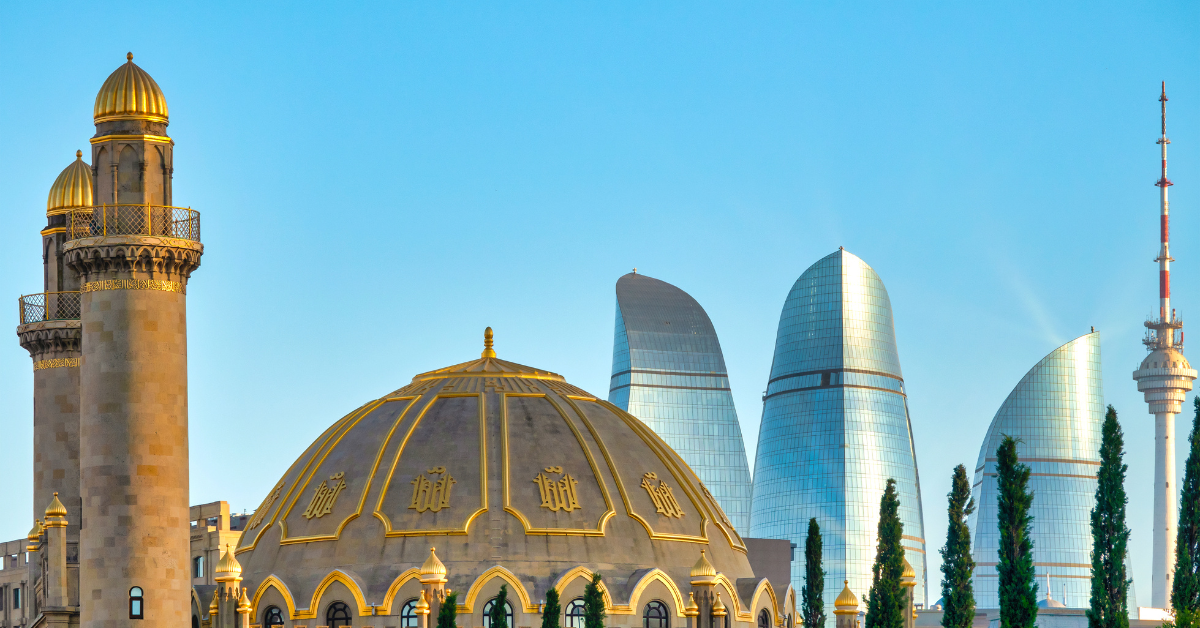Azerbaijan has gained international attention thanks to its oil resources and cultural heritage. Its kanji representation, “阿塞拜疆,” is based on phonetic transcription, which feels unfamiliar to many Japanese readers. This article explores both the origin of this kanji form and the various images Japanese people associate with Azerbaijan.
The Kanji Representation “阿塞拜疆”
In East Asian writing systems, Azerbaijan is written as 阿塞拜疆, a transcription derived from Chinese. This representation is based on sound rather than meaning, making it an example of phonetic adaptation.
| Category | Details |
|---|---|
| Official Kanji Representation | 阿塞拜疆 |
| Reading in Japanese | Asaibaikyō |
| Abbreviation | 塞 (Sai) |
| Origin of Usage | Adopted from Chinese phonetic transcription |
Since Japanese usually uses katakana (“アゼルバイジャン”), the kanji form appears difficult and unusual to many Japanese readers.
Main Images Japanese People Hold
Oil Resources and Economic Growth
Azerbaijan is often perceived as a country of abundant oil and natural gas resources, which have transformed its capital, Baku, into a modern city. The skyline filled with skyscrapers gives Japanese people an impression of a powerful energy hub.
| Image | Example |
|---|---|
| Resource-rich nation | Oil and natural gas exports provide national revenue |
| Economic hub | Development of Baku, modern skyscrapers |
| International business | Japanese companies show interest in energy projects |
A Country Where History and Culture Intersect
As a key location along the Silk Road, Azerbaijan has developed a society where Islamic culture blends with Soviet heritage.
Its cityscape features mosques and palaces alongside Soviet-style housing and squares, creating a contrast that feels fresh and fascinating to Japanese visitors.
| Historical Background | Cultural Features |
|---|---|
| Silk Road hub | Crossroads of East and West |
| Islamic influence | Mosques, cuisine, religious practices |
| Soviet influence | Architecture, education, language policy |
Sports and International Events
Azerbaijan has built an international presence in sports. The capital Baku hosts an annual Formula 1 Grand Prix, drawing global attention.
In addition, Azerbaijan has won numerous Olympic medals in judo and wrestling. For Japanese people, the country’s strength in judo creates a stronger sense of familiarity.
| Sport | Achievement |
|---|---|
| Formula 1 Azerbaijan Grand Prix | Held annually since 2016 |
| Judo | Multiple medals at world championships and Olympics |
| Wrestling | Recognized as a strong nation in the sport |
Through sports, more Japanese people have come to recognize Azerbaijan, adding the image of a “sports nation” to its reputation as an “energy nation.”
Azerbaijani Cuisine and Tourism
Understanding Azerbaijan also involves its cuisine and tourist attractions.
The national cuisine includes meat-rich dishes, with “shashlik” (skewered grilled meat) and “plov” (pilaf rice) being particularly popular among tourists. These dishes resemble Japanese foods such as yakitori and seasoned rice, making them surprisingly familiar.
Tourism highlights include the UNESCO-listed Old City of Baku and the famous “Burning Mountain” (Yanar Dag), where natural gas flames rise continuously from the ground. Such landscapes are unique to Azerbaijan and leave strong impressions.
Psychological Distance for Japanese People
For many Japanese, Azerbaijan still feels like a “distant country,” both geographically and culturally.
However, through exposure to energy resources, sports, and tourism, the country is shifting in perception from “a country I’ve only heard of” to “a country I know some characteristics about.”
| Stage | Japanese Perception |
|---|---|
| Past | Little to no knowledge of the country |
| Present | Known for resources and sports |
| Future | Increased familiarity through tourism and cultural exchange |
Conclusion
The kanji representation of Azerbaijan is 阿塞拜疆, based on phonetic transcription. For Japanese people, it is still not a familiar country, but its economic growth through oil resources, cultural heritage shaped by the Silk Road, and international presence in sports are gradually making it more recognizable.
As cultural and tourism exchanges with Japan expand, the perception of Azerbaijan will likely shift from a vague “distant country” to a “resource-rich and culturally fascinating nation.”






